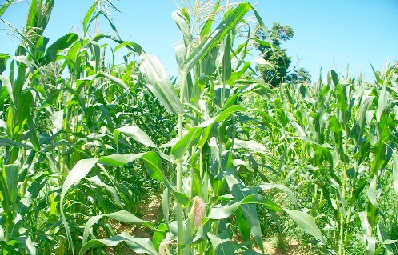
Time to invest in agriculture
Recent happenings in the financial industry, including the Menzgold saga and the knock-on effect, have many wondering where and how else one can invest. Leveraging over 20 years’ experience in agribusiness development, I believe this is the time to invest in agriculture.
This article discusses the profitability of agriculture.
Advertisement
Profitability
The profitability question is explored with an illustrative case of investment in rice production on an existing 20-acre farm which requires working capital of GH¢17,700 to finance variable costs. These costs include (a) harvesting with a combine harvester: GH¢5,000; (b) fertilisers (not subsidised): GH¢4,600; (c) drying the harvested rice: GH¢2,125; (d) cost of finance (at an interest rate of 26 per cent per annum for 180 days or six months): GH¢2,000; and (e) land preparation: GH¢2,000.
These five items together, a total of GH¢15,725, contribute 88.84 per cent of the total working capital required. Labour, seeds, weedicides, farm supervision and management, cleaning and bagging, transportation, etc., add up to the rest of the 11.16 per cent.
In a good year, the farm can obtain a yield of two tonnes (23.5 bags at 85 kilos/bag) per acre and a total output of 40 tonnes, equivalent to approximately 470.5 bags. The result (gross revenue) should be GH¢47,050 at a price of GH¢100/bag. Therefore, with
However, provision for post-harvest losses at 15 per cent of the total output results in a reduction from 470.5 bags to 400 bags. Thus, the gross profit will also drop from GH¢29,350 to GH¢22,300 on
Obviously, the case where an investment of GH¢17,700 results in
However, as long as the yield is higher than 8.81 bags per acre (i.e. the break-even yield, a third of the best-case scenario yield) the farm will make some profit.
Similarly, the best-case gross profit will not be realised if the price is lower than
However, as long as the price remains higher than GH¢44.20 per bag (i.e. the break-even price), the farm will make a gross profit.
Focus
So, part of the key to the profitability of agriculture lies in good yields and prices. These two factors are, however, results. Unfortunately, many farmers tend to make the mistake of over-focusing on yields and prices often forgetting the two are caused by other factors.
A football coach does not win a match by fixing his eyes on the results on the scoreboard. And just like football,
Gross profit provides the basis for some of the investment products in agriculture for third-party investors. A decent gross profit, however, also enables farm owners and operators to cater for fixed and other costs and to realise decent net profits.
How to achieve good levels of profitability in agriculture will be discussed in a separate upcoming series of articles.
The writer is a project manager, trained and practising business coach and agribusiness development specialist. He is the Chief Executive of AgFocus Ghana Limited, an agribusiness development advisory firm. He can be reached at [email protected].




